|
Books Work and school interfered with my self-selected reading, but I did manage to get through a few things. Standing at Armageddon: The United States, 1877-1919 by Nell Irvin Painter. The political economy of labor history seems like a weird thing for me to enjoy (and I couldn't quite manage it for the currency reform stuff) but overall I found this a super interesting overview of a super interesting time. I also really appreciated how straightforward Dr. Painter's writing is, and how she actually talked about workers and women and Black people and sometimes all three at the same time. Buy or Borrow. The Nickel Boys by Colson Whitehead "you teach what you're taught" Reading this the same week the news broke about the ICE uterus collectors really brought home to me how this story is about the past, but it's not just about the past. It's also about what we're teaching kids by allowing this sort of thing to continue. CW: all the content warnings but most of the horrors are not described in detail. Buy or Borrow. Articles "Decolonization is not a metaphor" by Tuck & Yang. Decolonising SOAS Learning and Teaching Toolkit for Programme and Module Convenors, May 2018 Podcasts
Still listening to a lot of the same series as I have been the past few months. Citations Needed, episode 118: The Snitch Economy: How Rating Apps and Tipping Pit Working People Against Each Other Spotify The Secret Life of Canada, season 3: The Mounties Always Get Their Land part 1 on Spotify Also, Ologies had a few episodes on jellyfish that were fun: Medusology and Toxinology (Jellyfish venom)
0 Comments
I was wondering why it seemed like I'd been reading a lot but had few books to share, but then I remembered that I'm actually a third of the way through half a dozen different titles so it's going to take me awhile to actually finish them all! And on the other hand, I've apparently been listening to a lot more podcasts than I've realized. Space and time, such amazing and confusing things. 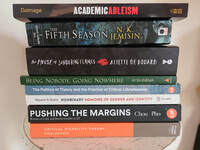 A big stack of books that I've enjoyed, from my personal collection. A big stack of books that I've enjoyed, from my personal collection. Books Civil Disabilities: Citizenship, Membership, and Belonging edited by Nancy J. Hirschmann and Beth Linker. It's almost unheard of for me to enjoy every chapter in an edited anthology, but this one managed to accomplish that! Every chapter had a slightly different focus (music or parenthood or state institutions). One of my favorite quotes from this book: "The civilizing mission rests on a web of contradictions and paradoxes, of which the most glaring and important for purposes of this chapter is that universal values can be universal only if there is an underlying belief that not everyone is capable of holding them." Universalism is always premised on the idea that there is something outside; I have literally never thought about this before, but it's right on. Also, I really appreciated in one of the later chapters, borrowing from historian Darlene Clark Hine's studies of late 19th century African American women, noting that there is also epistemological power in voluntary invisibility, retaining your self-knowledge so others can't construct you, categorize you, or diagnose you. Buy or borrow. Racecraft: The Soul of Inequality in American Life by Karen E. Fields and Barbara J. Fields. This book made me rethink everything I thought I knew about race and racism. Like the idea that when we say something is racist, we're not actually addressing the real problem. Instead, we're often using the term racism as a euphemism for anti-Blackness. Like the idea that race really isn't scientifically real at all, so any medical interventions classed as being directed at members of a certain race is inherently flawed. (I've seen Dr. Arrianna Planey talking about this before but this longer form version made me even more keenly aware of it every time I see it happening now, and it happens a lot). Like the idea that race occupies a space of being both real and not real, like witchcraft, and like witchcraft there's ongoing social (re)creation involved. There's also a whole chapter on oral histories, exploring it as a data type and discussing the ethical considerations of taking someone's story and re-purposing it for academic use. Buy or borrow.  "Headphones" by James F Clay is licensed under CC BY-NC 2.0 "Headphones" by James F Clay is licensed under CC BY-NC 2.0 Podcasts I'm listening to some of these more as series than as individual episodes, so that's how they're described here. Somehow Accentricity has become my bedtime stories. It's has sociopolitical aspects to it, which could be upsetting, but the host is just so sweet that I find it soothing. And since I need to train myself not to watch/read stuff on my phone at bedtime, this podcast has been a perfect way to learn more about accents and sociolinguistics and Scotland and finding your voice, while giving my eyes a break from bright lights. Listen on Apple or Spotify. The Revolutions podcast series on the Haitian Revolution. I'm not sure when I became intensely curious about Haiti, but I think it was when I learned that after enslaved Haitians had successfully gained their freedom from French slaveowners they had to pay reparations to the people who had enslaved them and profited from their labor (and suffering and disablement and death and holy cats this is monstrous). I did not learn this in my many years of French classes. I either learned it by chance on twitter or from reading Andres Resendez's The Other Slavery. I learned even more about it from Trouillot's Silencing the Past (referenced last month). And in an episode of Africana Philosophy on the revolution, they suggested this series to learn more. So here I am! All the trigger warnings for this one. Listen on Apple or Spotify. Did you know that the guy who invented the GDP warned Congress against using it because it would only benefit the ultra-rich and wouldn't provide any indication about the well-being of workers? Did you know that thanks to real estate developers' use of over-policing for gentrification purposes in Northern (US) cities, that we're now experiencing a reversal of the Great Migration? I didn't! Citations Needed has episodes that are much longer than I normally have the attention span for, but the content so far has motivated me to keep going. Listen on Apple or Spotify. Episode 108: How GDP Fetishism Drives Climate Crisis and Inequality Episode 116: The Pro-Gentrification Aspirationalism of HGTV's House-Flipping Shows  Jolin Tsai kissing another women as the thumbnail image of the music video "We're All Different, Yet the Same" Jolin Tsai kissing another women as the thumbnail image of the music video "We're All Different, Yet the Same" Just for Fun I fell down a Jolin Tsai rabbit hole this month. Taiwanese Mandarin-pop superstar Jolin Tsai has such an amazing back-catalog, ranging from the bittersweet love song "We're All Different, yet the Same" to gay dance-anthem "Fantasy" to her girl-power "I'm Not Yours."
I've actually been able to read this month! More successfully than the last few anyway. Let's hope that continues. 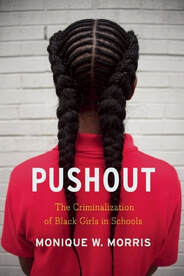 Pushout: The Criminalization of Black Girls in Schools by Monique W. Morris. What an amazing book. Really gets into the mix of racism and sexism that makes Black girls targets for overpolicing and overpunishment in schools, even by well-intentioned people. I've been pushing it on a lot of people who work in education, because we need to open our eyes and our ears and do better. Twitter read-along. Buy or Borrow. 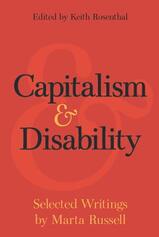 Capitalism and Disability: Essays by Marta Russell. This set of interconnected essays is a really great primer on Marxism and how disabled people cannot get free in a capitalist system. Capitalism is designed to exploit the maximum amount of labor for workers with the minimum amount of respect for humanity. We are human but we are not super-producers. (That said, there's less racial analysis that I would have liked personally. I still recommend it but it's good to know that going in.) Twitter read-along. Buy or Borrow.  White Whiskey Bargain by Jodie Slaughter. Sometimes you want an escapist romance because real life is too grim. Fun, sweet, interracial romance featuring some whiskey bootleggers fighting rich racists. Yay! (Includes some violence and m/f sex scenes.) Buy or Borrow. Library Trends, Volume 68, Number 3, Winter 2020, Strange Circulations: Affect and the Library, edited by Kate Adler and Lisa Sloniowski. I haven't made it through every article in this issue yet, but so far I've found two standouts that I enthusiastically recommend:
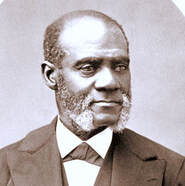 Let Your Motto Be Resistance: Henry Highland Garnet, episode 49 of the History of Africana Philosophy podcast. Nineteenth century Black disabled abolitionist and advocate for violent resistance when needed, peer of Frederick Douglass. Listen here, or on Apple or Spotify. 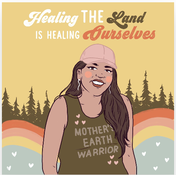 Healing The Land IS Healing Ourselves episode of the All My Relations Podcast. Capitalism teaches us how to consume but not what comes next, what to do with the remains of our consumption. Listen here, or on Apple or Spotify. I've managed to start listening to podcasts again. I force myself to go on walks and they keep me engaged. But my ability to finish a book was really lagging this month, so I have about half a dozen in the works with not much actually finished. Hopefully June is better in all ways. 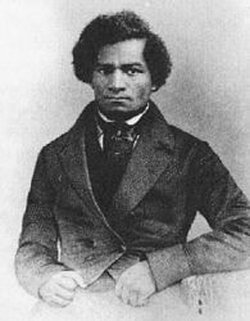 Frederick Douglass Frederick Douglass History of Indian and Africana Philosophy podcast ep. 47. Written by Himself: the Life of Frederick Douglass. Also on Apple Podcasts and Spotify. I've hesitated to read Douglass's work because slavery is so monstrous and he experienced it first-hand, and that kind of thing is really heavy. But this podcast also talks about how he used sarcasm and dark humor in his writing, and that automatically makes it feel more accessible to me. Yes, I am a wuss, I know this. But now I am a wuss who has Frederick Douglass on their to-read list!  close-up of a chain-link fence close-up of a chain-link fence Public Post #25 - 5 Things People Can Do Right Now (In Response To State Violence) by Trudy Exactly what the title says. Trudy suggests ways you can feel like you're doing something, whether it's educating yourself, protesting, or donating, in ways that don't continue to perpetuate harm or labor expectations on Black women. 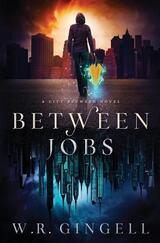 Cover art for the book Between Jobs by W.R. Gingell Cover art for the book Between Jobs by W.R. Gingell The City Between series by W.R. Gingell. Buy or Borrow. Also in KU. Pure escapist fun. I'm actually able to focus on these books, and enjoy them without having a little voice in my head trying to distract me. They get a little gory at times, but not so much that they disturb me. (Remember, I am a wuss. But also, we all have our own tolerances for stuff, so check reviews if this is the sort of thing you're sensitive to.)  Professor Rebecca Tsosie Professor Rebecca Tsosie Current Issues in Intellectual Property Rights to Cultural Resources, interview with Prof. Rebecca Tsosie (Yaqui). Copyright law is designed to protect individuals and commercial interests. It is not designed with Indigenous collective creations in mind. Indigenous property interests are not protected by current laws, so their resources are often forced into a commons status. Speaking of music sampling of traditional music, "That’s a taking of something that is not theirs to take, and some of those songs may in fact have a sacred essence, they may have spiritual value, so the harm’s not merely economic, but it can be a cultural form of harm that could be very devastating." This month was a lot of drama and not much reading. But I was able to focus on a few things that I found really meaningful. The Intuitionist by Colson Whitehead. So much fun! I enjoyed the story for itself, and I also enjoyed how it was such a clear homage to Ellison's Invisible Man, among others. I love this kind of genre-bending, lavishly textured weirdness. CW: use of the n-word, a torture scene. Buy or Borrow.
Portland Insight Medication Community Dharma Talk with Theravada Buddhist teacher Robert Beatty on Anicca: Change and Impermanence (available as a podcast or as a video). I listened to this at the beginning of the month, and it was really helpful to me as I was trying to find my ground beneath me during a lot of upheaval and uncertainty. Organizing Ideas interview with Sarah Dupont and Amy Perreault on Navigation, Resistance, and Rebellion. They talk about Indigenous engagement with GLAM work and the importance of finding and building community. I was really struggling to engage with podcasts this month, but this one managed to excite me and calm me at the same time. The Memory Police by Yoko Ogawa. I'm glad I didn't know what I was getting into when I started this! Thoughtful dystopian novel with little action and no answers. Sometimes trying to exist in the moment is all you can do. Buy or Borrow. |

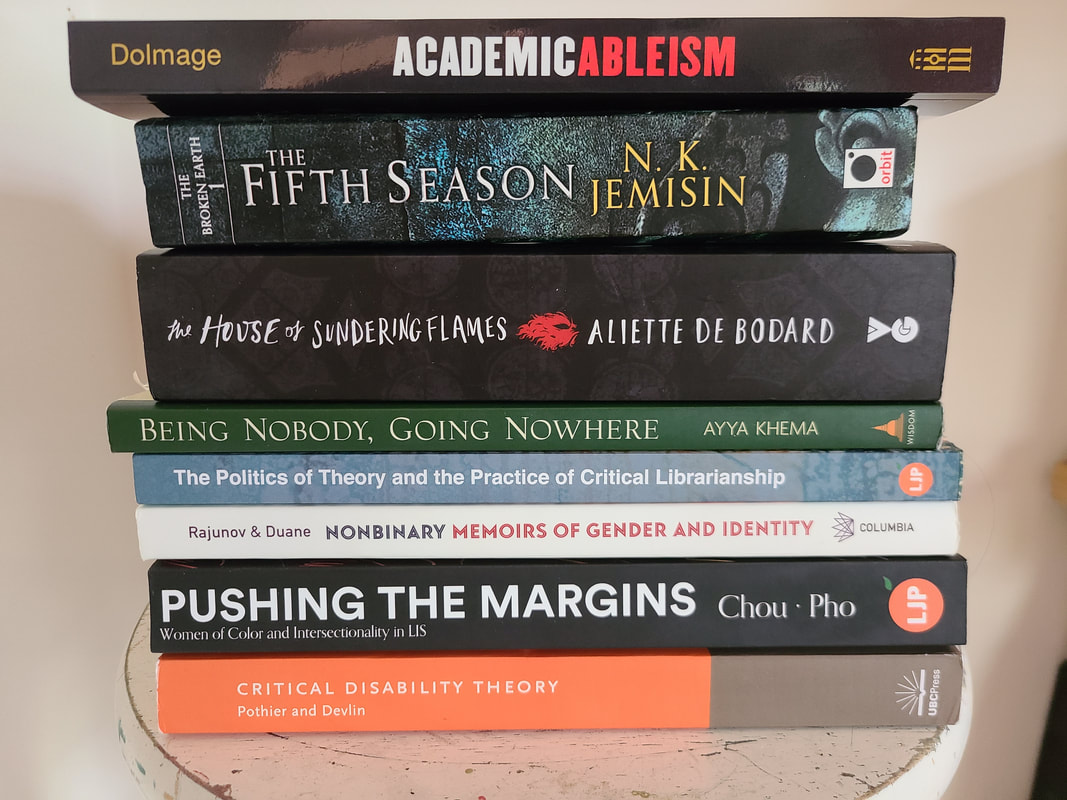
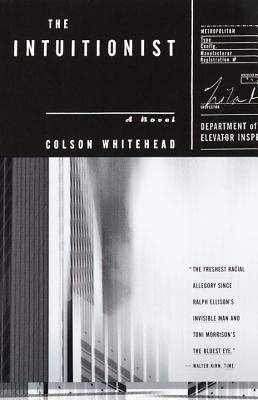

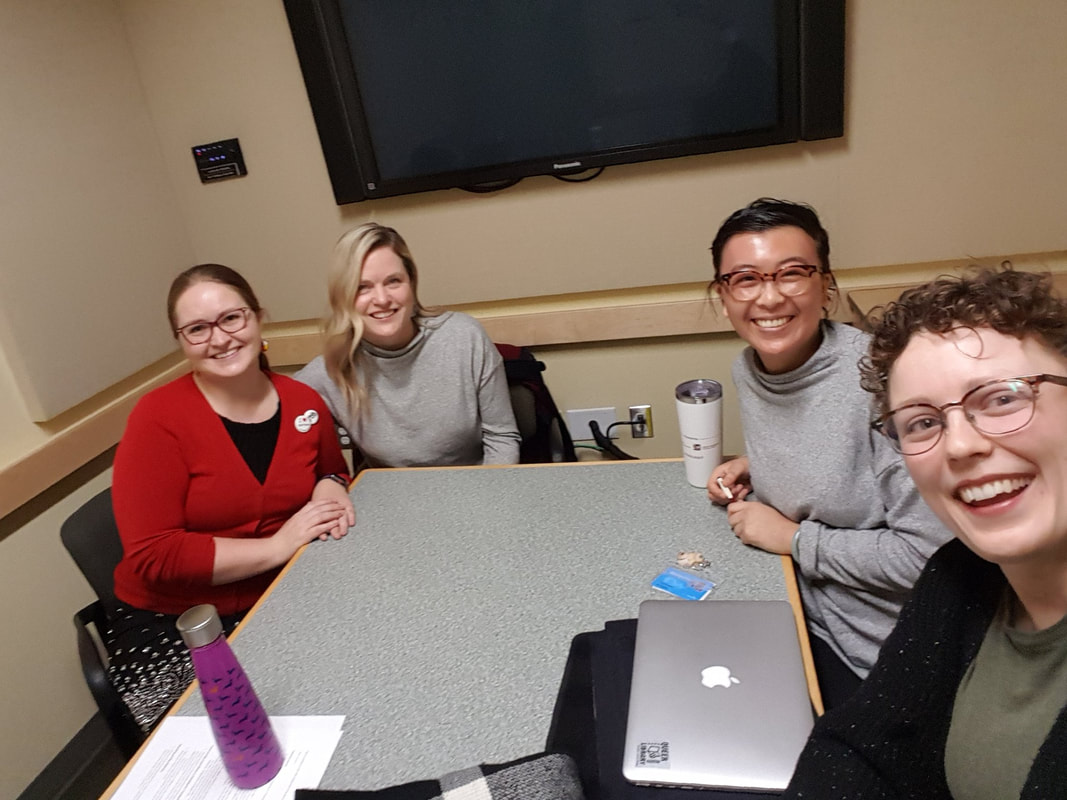
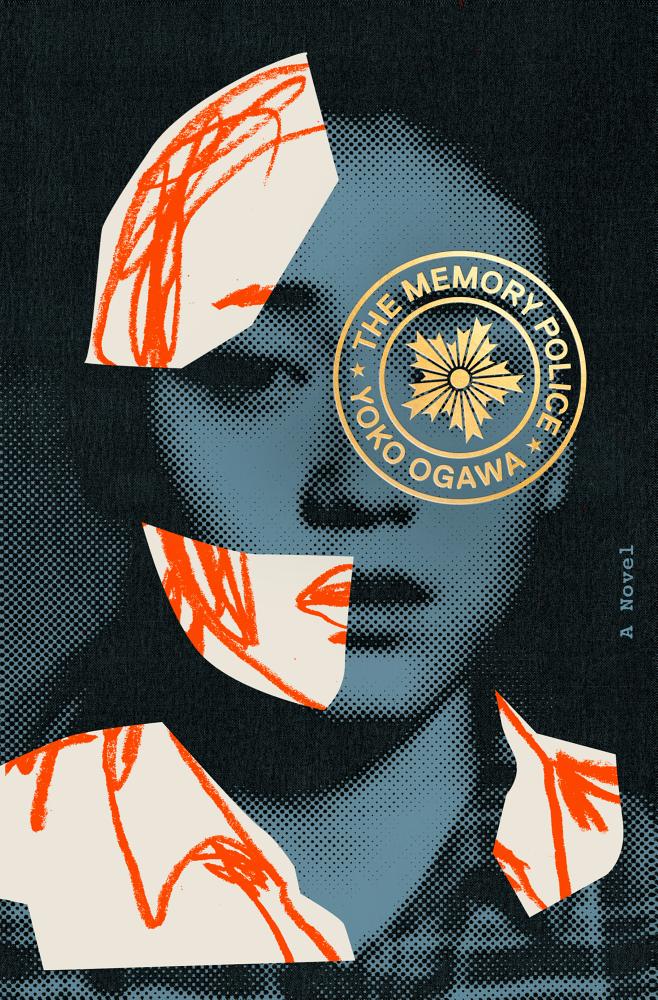
 RSS Feed
RSS Feed
